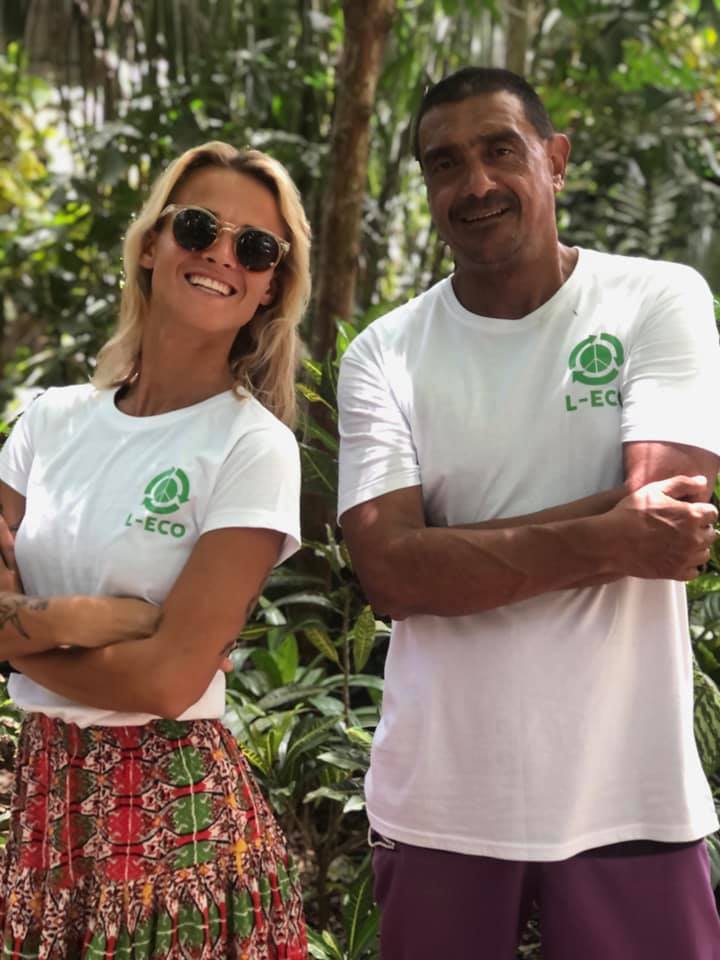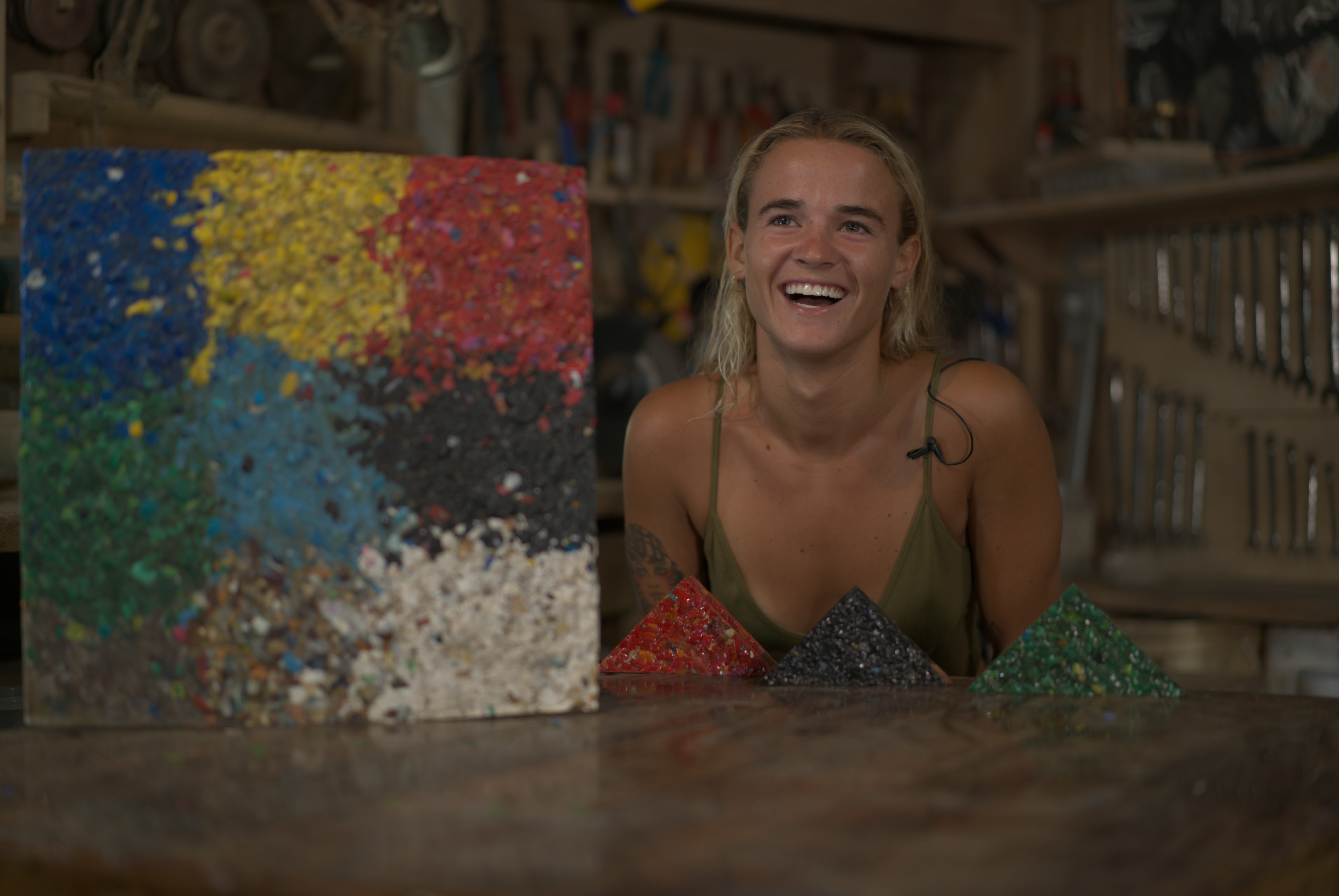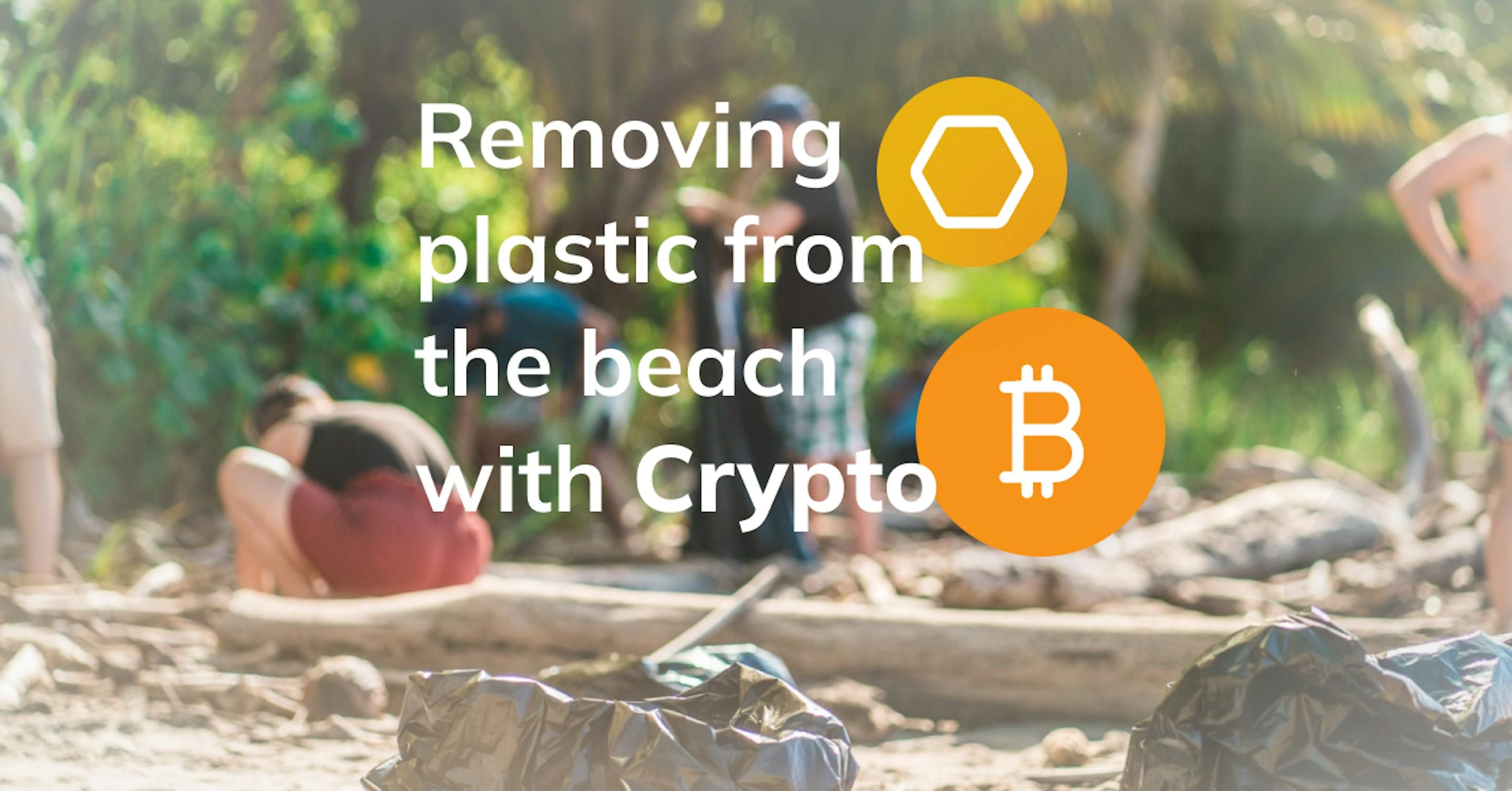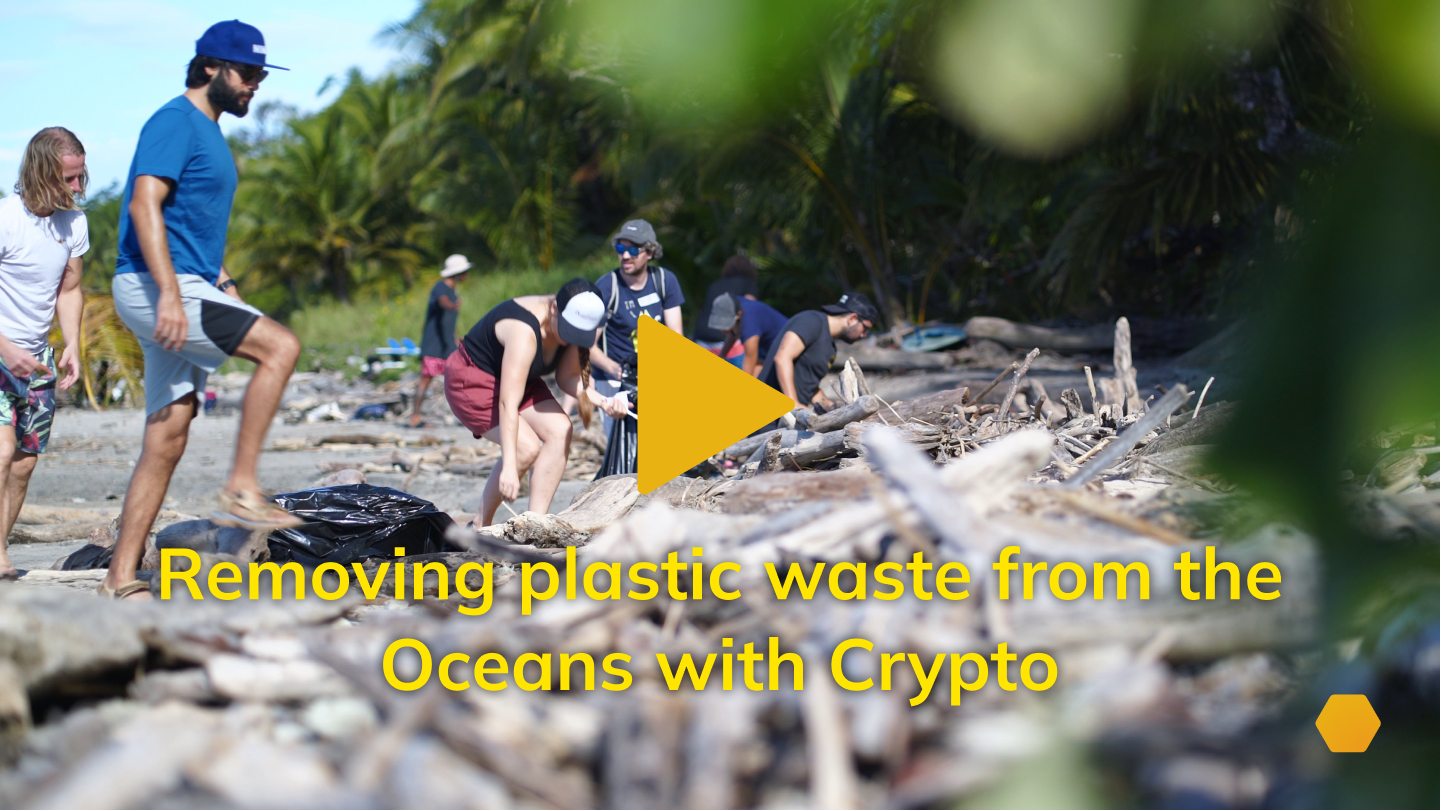NIM is the cryptocurrency for humans created by Nimiq, a non-profit and open-source project founded in the beach town of Santa Teresa, Costa Rica. Santa Teresa is a remote place that has since started to grow and is currently the center of the Silicon Paradise initiative, you can learn more about that here.
Nimiq is an Inuit word, it means “A force that binds things together”. Following this, we believe that communities are bound together by this force as they are all about helping one another and keeping alive the values that make them unique. As part of the local Santa Teresa community, Team Nimiq shares eco-friendly values and is especially akin to protecting the oceans, rivers, and beaches.
That's why Team Nimiq joined the #TeamSeas campaign by matching donations made through the Nimiq shop. You can read more about it here. However, collaborating with #TeamSeas through donations didn't seem enough, also from a personal level, as we love going for a swim on the weekend. You can occasionally find Nimiq Devs gazing at the sunset or going for a walk after a long day of coding Nimiq's new Proof-of-Stake Blockchain: Nimiq 2.0.
It is because of this personal connection with the ocean, water, and beautiful beach community here in Santa Teresa that we as a project want to support local efforts, even if our contributions are small. We hope that people are encouraged and motivated by this small but strong community. Here are their stories.
L-ECO
L-ECO is a local effort that focuses on collecting plastics and microplastics from the beach. Through eco-friendly processes, they transform these plastics (mostly bottle caps) into all sorts of daily use items such as building bricks, napkin holders, surfboard wax combs, and even artwork. They are supported by local shops, restaurants, and hotels that use their products in an effort to convey these eco-friendly values on which Santa Teresa is built. L-ECO was founded with the idea that “ethical compromise, the intellectual process, and survival instinct all intersect with the philosophy of sustainability.”
The Face Behind The Story

Alejandro or “El Che”, the creator of L-ECO block, has lived in Santa Teresa for over 20 years. He is a local bread salesman and a beloved member of the community. Originally from Argentina, every morning El Che takes his bicycle on his route to deliver delicious fresh baked bread around town. It was during his daily commute that he started seeing plastic all over the place until one day he had an idea and decided to take action.
With a piece of equipment that he built and attached to his bicycle, he collects plastics and microplastics, and ingeniously separates them from sand and other sediments through a manual filtering process. After gathering the plastic comes the task of classifying it. Not all plastics are the same and Alejandro is very mindful of this so that he does not create any additional pollution. Once the plastic has been classified, he heats up and compresses it into usable shapes. In his own words “These are not the prettiest of all items — we agree here — but they hold significant value. When you hold these pieces of craftsmanship you feel something different inside of you, that feeling is the power of change.”
Back in 2018, Team Nimiq met Alejandro. After listening to him and his enthusiasm for conservation, a furnace was donated so that he could process the plastics he was picking up from Santa Teresa beach. We are very excited to announce that, years later, the same furnace is still up and running. Alejandro’s gentle heart has also captivated ex-pats from all over town. This has allowed L-ECO to grow beyond what he conceived. His workshop is hosted by Thomas Richie, one of the first foreigners that — enticed by its natural beauty — moved to Santa Teresa. Thomas became his sponsor, but more importantly, his good friend and ally in this endeavor. Through donations and support, you can help Alejandro and Thomas continue this valuable effort. More details on that below.
The power of volunteers
While Che started this effort alone, it’s not a one-man job. Through the years, many people have helped Che collect the plastic, each contributing with their part. One, in particular, decided to stay.
Juana came to Santa Teresa from Argentina three years ago. She is a craftswoman who had never taken part in ecological projects before, but much like the rest of the community, she was inspired by Che and Thomas’s actions. Originally, she joined the beach clean-up efforts, helping Che rally people and working with other local organizations to spread the message.
One day, while Che was building a napkin holder made out of bottle caps, she thought to herself “This could be much nicer” and started collaborating permanently especially on the aesthetic part of the products, imprinting herself and her personality in L-ECO. Juana didn't stop there, she then proceeded to create and manage L-ECO’s Instagram account and is currently working on their website, bringing color and youth to the company.
In her own words “Social media is the best way to show people what is happening. Most people have a phone and if you can reach them on Instagram or YouTube maybe they can start realizing the extent of the problem. There is a lot of plastic in the world and we can reuse it. If you want to help, visit our social media channels, or better yet, visit us in Santa Teresa and see what we do and how we use the plastic.''
If you are visiting Playa Santa Teresa, in Costa Rica, make sure to check out Nimiq Silicon Paradise to find this and other merchants accepting crypto. At L-ECO you can get a beach clean-up tour and support them by buying products made of plastic recovered from the beach.

Nicoya Peninsula Waterkeepers
The Nicoya Peninsula Waterkeepers are members of the Waterkeeper Alliance, a worldwide effort made up of over 350 organizations. The purpose of the organization is to tackle the problems of pollution in coastlines, rivers, and lakes through grassroots actions. The guiding principle of Waterkeepers is that without water, there can be no life, and without clean water, there can be no healthy life.
The organization focuses on four main courses of action: waste management, water management, education & awareness, and Law enforcement.
To tackle solid waste management, the not-for-profit organization runs a recycling operation together with their partner Bionic, collecting over 200 tons of recyclable material a year. They also help local community groups like L-ECO organize beach clean-ups and to educate people about the issue.
The idea is not just to clean the beach, but instead, to help people understand the magnitude of the problem. Once you have seen so many discarded plastic items, you might wonder if you needed them in the first place. Some members of Team Nimiq also joined locals in a beach clean-up to see it for themselves and came to the same conclusion. Removing trash from the beach is only a temporary solution, an exercise in consciousness regarding the real source of the problem: overconsumption of plastic in everyday items, from a toothbrush to a toy.
For water management and awareness, NP Waterkeepers focus on education. They reach out to people and talk to them. Problems like the consequences of flushing a toilet that is not connected to a septic tank or trash being thrown into rivers are emphasized. The idea is to rekindle the connection that humans have with water and its natural cycles. They have several community outreach programs and welcome everybody that wishes to be educated, including Nimiq. There you can learn about water pollution and bad practices that do not comply with the law.
Law enforcement can be employed when private citizens or businesses are polluting. NP Waterkeepers work closely with authorities so that they can come and check what businesses are doing. The first approach is always friendly, they try to educate and give out the necessary information in order to solve the problem, but when there is negligence, they come with the full weight of the law. With their effort and kind heart, the NP Waterkeepers have become an integral part of the Santa Teresa community.
Meeting the first NP Waterkeeper
Carolina Chavarria is no stranger to humanitarian work. Born in Costa Rica, her willingness to help others took her abroad. Before being a Waterkeeper, Carolina used to work for an NGO. She has worked in Africa and war-torn countries, focusing on humanitarian help and establishing community development strategies.
When she returned to Costa Rica, she was contacted by the Hecht family. As it turns out, the Hecht family is an active member of the global Waterkeepers organization and they decided to impact Santa Teresa and Cobano for the better. They armed Carolina with funding and a new mission, to build the team of now 15 members forming the Nicoya Peninsula Waterkeepers.
As the years have gone by, NP Waterkeepers has become an important part of daily life for the community. Today, they are not funded by a single family, instead, they receive funding from various actors that wish for Santa Teresa to be clean instead of polluted. This additional funding has enabled NP Waterkeepers to run more educational projects and further impact people's lives.
The Big Takeaway
Having spoken to Carolina and Che it became increasingly obvious how it's all about connecting people. Connecting people who wish to help, like Thomas Richie and the Hecht family, with people who need help in order to continue their mission. We hope for the Silicon Paradise initiative to bring these people together and have an even bigger impact in Santa Teresa.
Finally, our biggest takeaway from meeting with these local projects is that change can only occur through education and mindfulness. Picking up plastic from the beach is not a permanent solution. We decided to use our reach to help spread the message of our community here at Santa Teresa. However, local heroes exist in all communities and we encourage you to help them spread their message as well.
Pura Vida,
Team Nimiq


